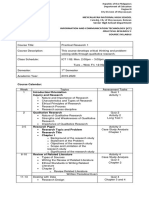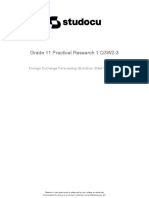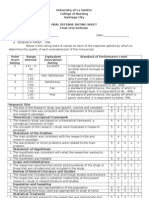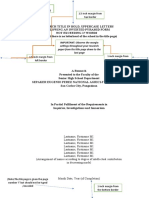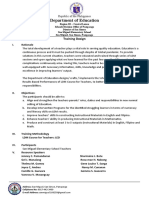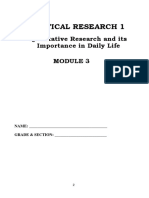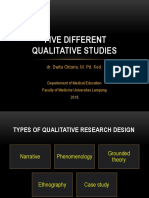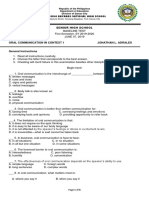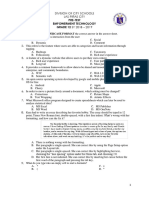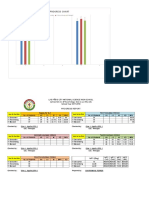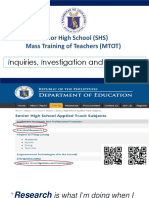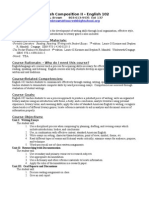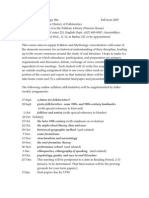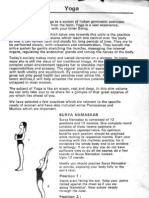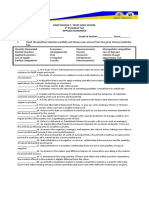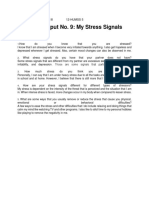Republic
of the Philippines
DEPARTMENT OF EDUCATION
National Capital Region
Division of City Schools
Las Pinas City
SENIOR HIGH SCHOOL
SHS APPLIED TRACK: Practical Research I
Subject Description: This course develops critical thinking and problem-‐solving skills through qualitative
research
Instructor: MR. GENESIS JULYUS T. AGCAOILI, M.Sc. Email Address:genesisjulyus. agcaoili@deped.gov.ph
Consultation Hours: ________________________ Class Schedule: ______________________________
Course Description
A course in the senior high school program in which the required output is a full length research paper.
Practical Research I is a course that discusses the principles involved and options available in the
planning, analyses, and interpretation of qualitative research studies. The course provides the students
a synthesis off current methodological thoughts and practices in qualitative and scientific research to be
able to write a research paper. This course is an avenue where the students confer with their adviser on
the actual writing of the manuscript.
Learning Outcomes
On completion of this course, the student is expected to present the following learning outcomes in line
with the skills provided by the Department of Education for a Senior High School Student graduate.
1. Critical and Creative Thinker
2. Effective Communicator
3. Lifelong Learner
4. Service-‐driven Citizen
5. Global Citizenship
On completion of this course, the student is able to prepare and present a full length research paper,
learn how to differentiate and relate various phases of qualitative research, and be able to critically
appraise scientific journal and proposals.
Final Course Output
As evidence of attaining the above learning outcomes, the student is required to submit the following
during the duration of the course.
1. Complete research proposal
2. Presentation of research proposal
3. Complete research paper
4. Presentation of research paper
5. Critic a scientific journal
6. Research Logbook
7. Research display board
8. Research seminar and workshop
Learning Plan
LEARNING OUTCOME LECTURE TOPICS WEEK LEARNING ACTIVITIES
On completion of this • Introduction to Research 1 Group dynamics
course, the student is • Importance of Research
able to prepare and • Characteristics, Processes, and Ethics of
present a qualitative Research
and scientific • Kinds of research across all fields
research study, learn LONG EXAM 1 2 Individual learning
how to differentiate, Critic Paper 1
and relate various • Value of Qualitative Research 3 Group dynamics
phases of scientific • Importance of Qualitative research
and technical across all fields
research and be able • Range of research topics in the area of
to critically appraise inquiry
scientific journal and
Synthesis Paper 1 4 Individual learning
proposals.
• Value of research in the area of interest 5 Group dynamics
• Specificity and feasibility of the
problem proposed
• Criteria in selecting, citing, and
synthesizing related literature
LONG EXAM 2 6 Individual learning
Critic Paper 2
Submission of Research Proposal (Draft)
• Ethical Standards in Writing related 7 Group Dynamics
literature
• Qualitative Research designs
• Description of Sample
• Data collection and analysis procedures
LONG EXAM 3 8 Individual Learning
Synthesis Paper 2
Scientific Journal Reporting
Submission of Research Proposal (Final)
• Application of creating designs 9 Group dynamics
principles for execution
• Observation and interview, procedures
and skills
• Drawing out patterns and skills for data
LONG EXAM 4 10 Individual learning
Synthesis Paper 3
Research Logbook Submission
Research proposal presentation
Research Proposal Submission
• Guidelines in making conclusions, and 11 Group dynamics
recommendations
• Techniques in listing References
• The process of report writing
• LONG EXAM 5 12 Group dynamics
• Research Paper Submission
• Display board Submission
• Powerpoint Presentation Submission
• FINAL EXAMINATION 13 Individual learning
• FINAL DEFENSE
References
Marder, M. 2011. Research Methods for Science, Cambridge: Cambridge University Press
Myers, J. 2010. Research designs and statistical analysis. New York: Routledge
Packer, M. 20111. The science of qualitative research. Cambridge: Cambridge University Press.
Online References
www.statsoftinc.com/textbook/esc1.html
www.ephu.man.ac.uk/Teaching/Undergrad/CritAppl/what.html
Class Policies
Class attendance is required and expected. No use off electronic devices are allowed during class unless
authorized. Readings, reports and research papers (proposal and final research paper) must be
submitted on time. Late submission will be subjected to a 20% deduction for each day late. Makeup will
be given only for the long exam of the absence is officially valid, and in accordance with the instructor’s
discretion. Honesty and integrity are integral components of the academic process. Attentiveness and
active participation are critical to successful learning. The policies on academic dishonesty, attendance,
and behavior stipulated in your Student handbook are honored in this course. Any kind of plagiarism is
strongly prohibited.
Prepared by:
GENESIS JULYUS T. AGCAOILI, M.Sc.
Master Teacher I
Subject Area Head
I hereby read and agreed with the terms and condition stipulated in this course syllabus.
____________________________________ _________________
Signature over printed name of the student Date
___________________________________ _________________
Signature over printed name of the parent/guardian Date
